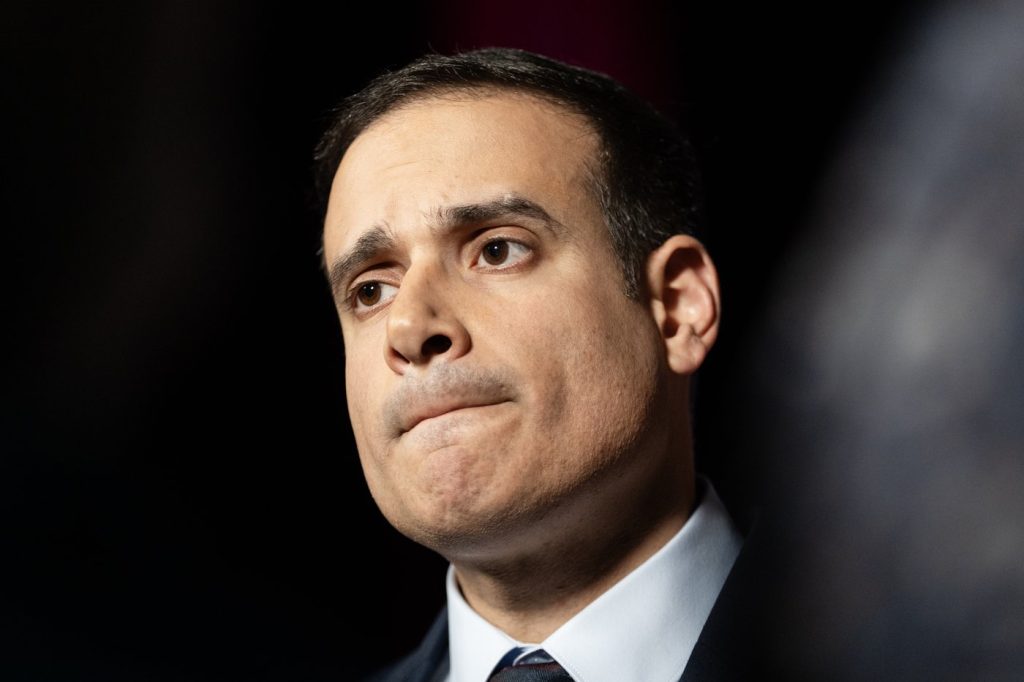Federal minister calls utility’s pause on Atlantic energy corridor ‘bump in the road’
Posted Oct 25, 2022 04:11:00 PM.
HALIFAX — Nova Scotia Power's decision to “pause” its participation in a proposed megaproject aimed at ending reliance on coal is just a temporary setback, says the federal cabinet minister charged with moving the electrical grid off fossil fuels.
Jonathan Wilkinson, the minister of natural resources, said in an interview Monday the utility's move is a challenge to a concept dubbed the Atlantic Loop, which envisions a $5-billion transmission project giving the region more access to Labrador and Quebec hydroelectricity.
However, Wilkinson also said the federal government is still actively pursuing the energy corridor.
“We've been working on this project for a few years. This is a bump in the road, but it's something I am very focused on ensuring can be overcome,” he said.
Emera, Nova Scotia Power's parent company, said last week it was putting participation in the project on hold after the provincial Progressive Conservative government introduced legislation capping power rate hikes at 1.8 per cent over the next two years for non-fuel costs.
The legislation states the 1.8 per cent increase must be to build a more reliable grid following widespread outages that occurred during hurricane Fiona.
In a statement sent to The Canadian Press last week, Emera said it has “paused work on the Atlantic Loop project” while it assesses the full impact of the Nova Scotia legislation.
It also says this “is just one example of the investments Nova Scotia Power will be forced to reassess,” saying that the law could mean investments in other clean energy projects worth about $500 million could be shelved. Details have yet to be released.
However, Wilkinson says with both federal and provincial legislation setting out carbon emission goals, the loop remains an important project.
“The reality for the Nova Scotia government is there are few other options that will enable them to be in compliance with the federal legislation and … their own domestic plans, which include a move away from (carbon) emissions from the electricity grid,” he said.
Both Nova Scotia and New Brunswick have committed to phasing out their coal-fired generation by 2030, while Nova Scotia has enshrined in law its goals to reduce greenhouse gas emissions to at least 53 per cent below 2005 levels by 2030 and to achieve net-zero emissions by 2050.
The federal minister's mandate letter from the prime minister calls on him to support efforts to achieve a net-zero electricity system by 2035, and to consult with the provinces to remove carbon from the systems.
Earlier this year, Dominic LeBlanc, the federal minister of intergovernmental affairs, had said the hope was to have a clear business model this year, but Wilkinson said he's now hopeful this progress will occur by early in 2023.
“I'm still hopeful we will be in a position where we will actually have … an agreement on how the financials will work by early next year,” he said.
The power company said last week in a news release that even its plans to make the grid more resilient in the face of more intense storms could face “limits” due to the province's proposed rate hike limitations.
Some experts are urging the province and utility to stop quarrelling over this issue, considering the risks that further mass blackouts pose, and to seek federal financial assistance to improve the infrastructure before another massive storm hits.
Wilkinson said “the federal government understands it has a responsibility to play a role” in making the grid more reliable, but he adds it also looks for the provincial government to participate financially.
A study released last May by the Halifax-based Ecology Action Centre concluded the Atlantic Loop is only a part of the solution to meet future demand for clean electricity.
The study warned the modelling to measure the costs of the Atlantic Loop is uncertain because the price tags of large projects are often underestimated while the costs of renewable energy sources could fall faster than anticipated.
Tynette Deveaux, a spokeswoman for the Sierra Club Canada, said in an interview that there have long been doubts about the viability of the Atlantic Loop, and that the province and Nova Scotia Power should have been more vigorously pursuing renewable energy based in the region.
“If we were to use the wind energy, we could be off coal before 2030,” she said.
A spokeswoman for Hydro-Québec said in an email that the utility continues to participate in Atlantic Loop discussions.
“In order for a project to materialize, a commercial agreement must be reached by all partners, including the federal level, Hydro-Québec and all Atlantic utilities,” Maxence Huard-Lefebvre wrote in an email.
This report by The Canadian Press was first published Oct. 25, 2022.
Michael Tutton, The Canadian Press








